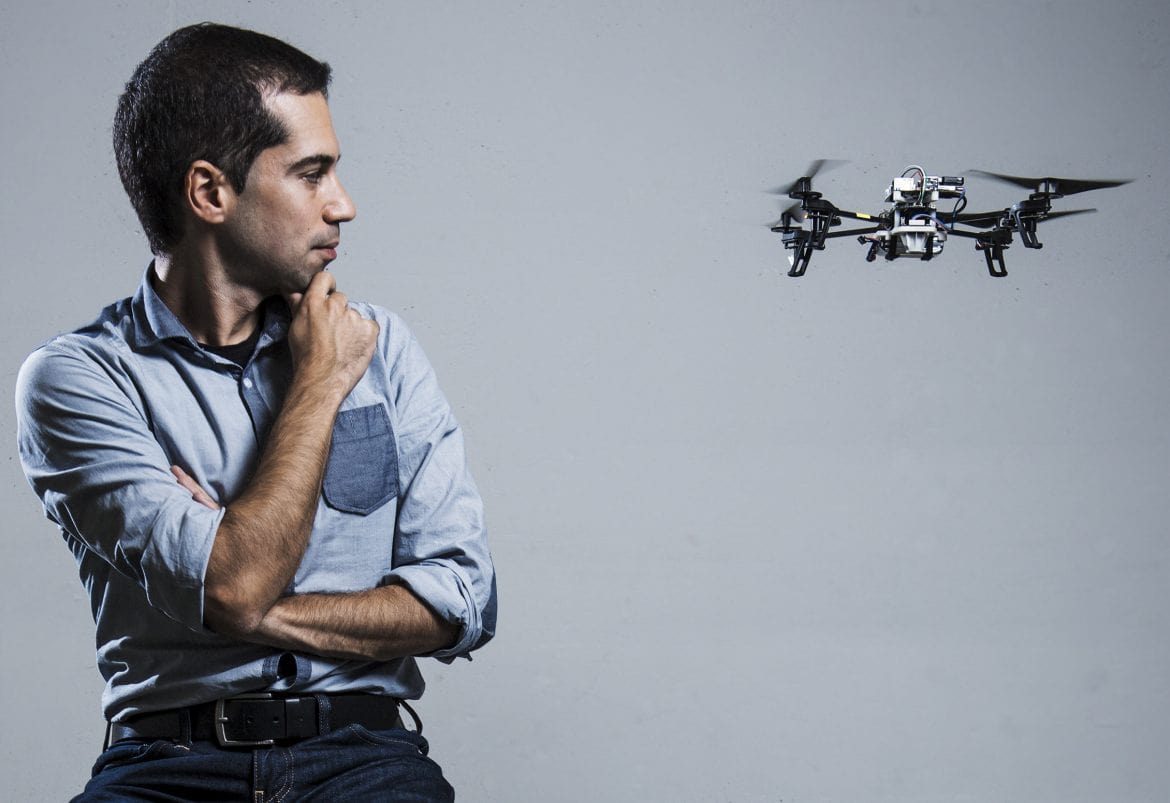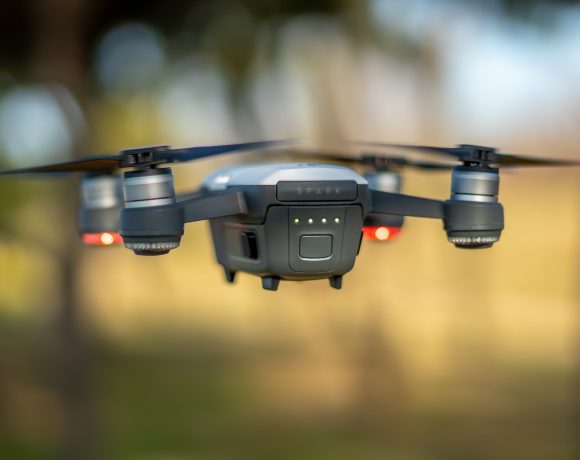- Renowned robotics experts from ETH Zurich, Davide Scaramuzza, developed a research line on vision-based drone navigation. They fly themselves by relying on the images captured by the onboard camera. The camera captures the contours of objects. And the contours are reconstructed into 3D maps of locations.
- Davide says that Switzerland has the highest density of successful drone startups in the world. They are ahead because they started their research ten years earlier than other countries. Currently, there are around 40 startups out of 90 companies that work on drone technologies in Switzerland.
- On asked his thoughts on the robotics enthusiasts he met in India, he said he found them to be very skilled and up-to-date on the latest developments in robotics. I could speak to them like any peer in silicon valley, with the same level of understanding and knowledge.
When I sat down for a conversation with Davide Scaramuzza, I was quite apprehensive. After all, he is a world-renowned expert on drone technology. His work has been published widely, across international media. I was worried that my lack of knowledge on the subject was going to be an impediment. However, Davide broke down a complex topic such as drones into simple elements that helped me keep pace with him.
Davide started off with his entry into the Swiss robotics research ecosystem. With a background in electrical engineering from the University of Perugia, Italy, Davide moved to Switzerland in 2004 to work with Ronald Seigwart, a renowned robotics expert at ETH Zurich (ETH), Switzerland. As a young scholar, Davide had been fascinated by Seigwart’s work on mobile robot design and navigation. He applied for an internship in his lab at ETH and went on to do his PhD there. Davide’s formative years in drone research were, thus, spent in Switzerland. It’s where his idea of doing research on vision controlled autonomous drones germinated. Even though he did his post doc in the US, he returned to Switzerland to continue his research.
Davide expressed his passion for working on areas of research that are challenging. According to him, working on micro drones is difficult because they are small and agile, and thereby, harder to control. Davide developed a research line on vision-based drone navigation. Unlike traditional micro drones that are navigated by licensed pilots using GPS, the drones developed by Davide fly themselves by relying on the images captured by the onboard camera. The camera captures the contours of objects. And the contours are reconstructed into 3D maps of locations by powerful computers, using simple and smart algorithms.
These drones are tremendously useful in rescue and relief operations. When a natural calamity occurs, Davide’s micro drones can be deployed to scour a location, identify victims and return to the rescue team with specific markups of the victims location. Davide’s research received funding from the National Centres of Competence Research (NNCRs) at the Swiss National Science Foundation.
When asked about Switzerland’s drone ecosystem, Davide said that Switzerland has the highest density of successful drone startups in the world. They are ahead because they started their research ten years earlier than other countries. Currently, there are around 40 startups out of 90 companies that work on drone technologies in Switzerland, some of them having more than 100 employees. A unicorn of drone startups in Switzerland, called Auterion, recently received CHF 10m as seed funding, which is a rare feat, given that the norm in Europe is CHF 3m.
He attributes the success of this growth to the openness of the government. “Compared to Italy, Germany, France or the US, Switzerland is the most open and probably the most liberal country. I think the culture, as well as the economic and political stability allows this. You are allowed to fly anything below 30 kilograms in Switzerland without authorisation, if you fly away from people and public areas. This is very unique. In other countries, you need authorisation and a flying license.”
On asked his thoughts on the robotics enthusiasts he met in India, Davide said that he was bombarded with questions. Many of them had read his papers and were familiar with his work. “I found them to be very skilled and up-to-date on the latest developments in robotics. I could speak to them like any peer in silicon valley, with the same level of understanding and knowledge. I was really impressed,” said Davide. However, he felt that the theoretical knowledge of the researchers in India needed to be complemented with experimental validation.
Davide had given a talk at the Advances in Robotics conference at IIT, Chennai and visited the Intel team in Bangalore. He observed that India is strong on affordable design, and that is a crucial requirement for the robotics community world-wide. He has two Indian researchers working in his lab and is aware of many who’ve made a mark internationally. “Several robotics experts in the US are Indian”, said Davide. He expresses his admiration for the work being done by pioneers, such as, Vijay Kumar from University of Pennsylvania (his former mentor), Gaurav Sukhatme from University of Southern California, Sanjiv Singh from Carnegie Mellon University, and Jitendra Malik from UC Berkeley.
Davide’s reference to the presence of highly skilled workforce in India could imply that India stands to play a key role in drone innovation in the future. Combining the skills in India with the advanced economy in Switzerland could also lead to great outcomes for the drone industry.






NO COMMENT